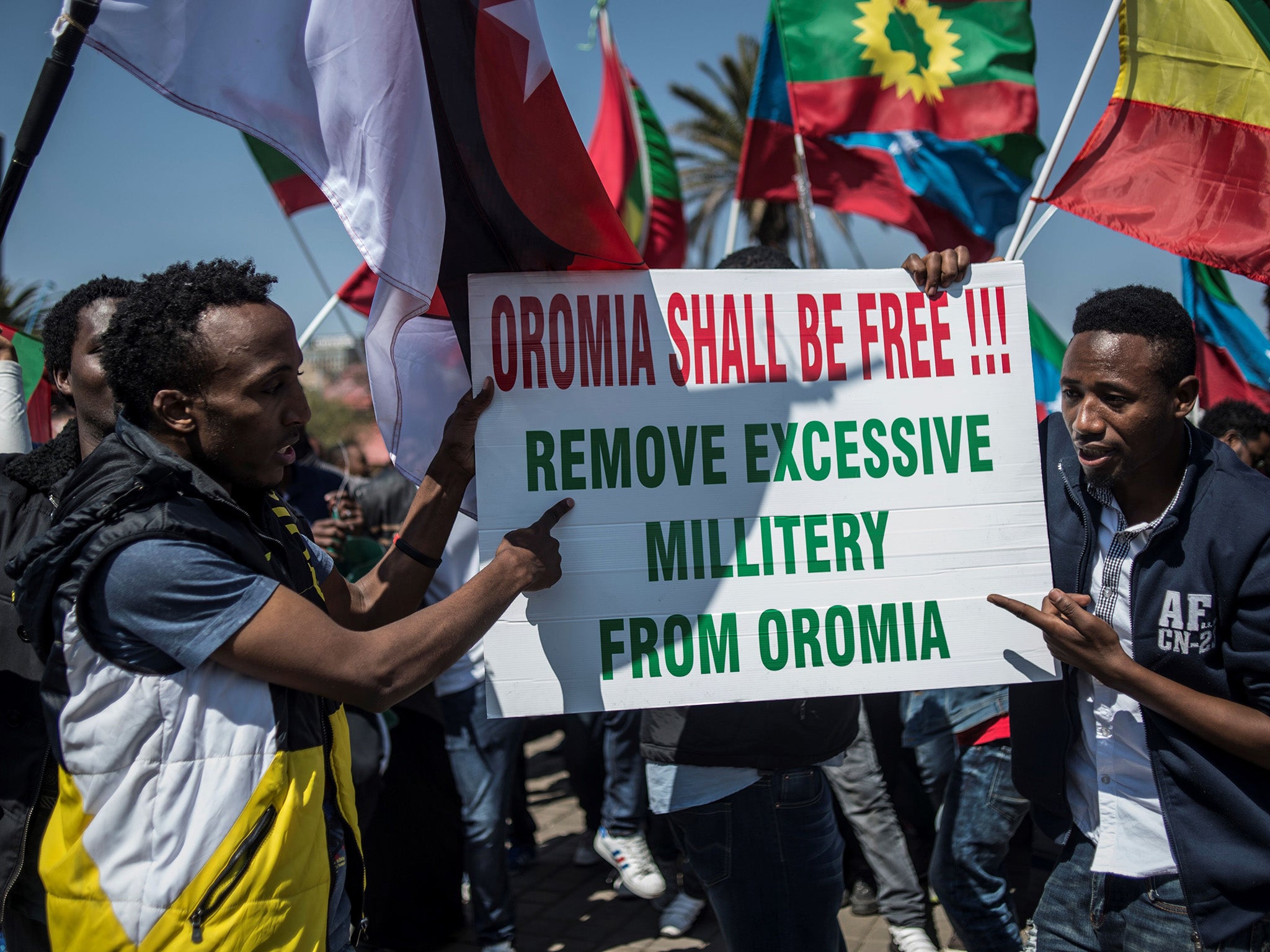Ethiopian state TV censors marathon runner’s finishing line protest
Feyisa Lilesa raised his arms to form an 'X' as he crossed the line taking silver, a symbol of defiance

Your support helps us to tell the story
From reproductive rights to climate change to Big Tech, The Independent is on the ground when the story is developing. Whether it's investigating the financials of Elon Musk's pro-Trump PAC or producing our latest documentary, 'The A Word', which shines a light on the American women fighting for reproductive rights, we know how important it is to parse out the facts from the messaging.
At such a critical moment in US history, we need reporters on the ground. Your donation allows us to keep sending journalists to speak to both sides of the story.
The Independent is trusted by Americans across the entire political spectrum. And unlike many other quality news outlets, we choose not to lock Americans out of our reporting and analysis with paywalls. We believe quality journalism should be available to everyone, paid for by those who can afford it.
Your support makes all the difference.Ethiopia’s state-owned TV network has refused to broadcast footage of one of its most successful Olympic athletes crossing the finishing line or receiving his medal after he staged a political protest against oppression back home.
Feyisa Lilesa won silver in the men’s marathon on the last day of events in Rio, making him Ethiopia’s joint second most successful performer after the country won just one gold in a disappointing campaign.
As he crossed the line on Sunday he raised his arms to form an “X”, a symbol of defiance that has been used by the Oromo people in Ethiopia as part of political protests against the government.
Lilesa repeated the act in a press conference after the race, and said he would repeat it at the medal ceremony later. He told reporters he faced being killed for doing so if he returns home after the Games.
EBC, the Ethiopian state broadcaster, was showing Lila’s race live on TV on Sunday afternoon. As such, it was unable to avoid airing his protest as it happened the first time.
But the moment he crossed the line was cut from subsequent bulletins and, unlike with its other champions, EBC refused entirely to show footage of Lilesa being given his silver medal.
On its website, EBC carried a report on the result entitled “Ethiopia wins Silver medal in men’s marathon”.
While its online reports from other Rio events tended to show pictures of victorious athletes after they had finished competing, the Lilesa article was accompanied by an image of a group of the marathon runners halfway through the race.
Neither online nor on TV did the state-run broadcaster make direct reference to Lilesa’s protest.
The athlete is from Oromia, home to many of the 35 million Oroma people, Ethiopia’s largest ethnic group. At the press conference, he said: "The Ethiopian government is killing my people, so I stand with all protests anywhere, as Oromo is my tribe. My relatives are in prison and if they talk about democratic rights they are killed.”
Lilesa told reporters he would be killed or put in prison if he returned home, and said he feared for his wife and two children who are still in Ethiopia. He said he plans to try and stay in Brazil or make his way to the US.
The Ethiopian government has since said it respects Lilesa’s political views and has no reason to prosecute him if he returns to the country.
A government spokesman, Getachew Reda, told the state-affiliated Fana Broadcasting Corporate that Lilesa "will be conferred a heroic welcome along with his team members."

Human Rights Watch estimates 400 people have been killed in a brutal regime response to the Oromo protests, which began late last year.
Join our commenting forum
Join thought-provoking conversations, follow other Independent readers and see their replies
Comments